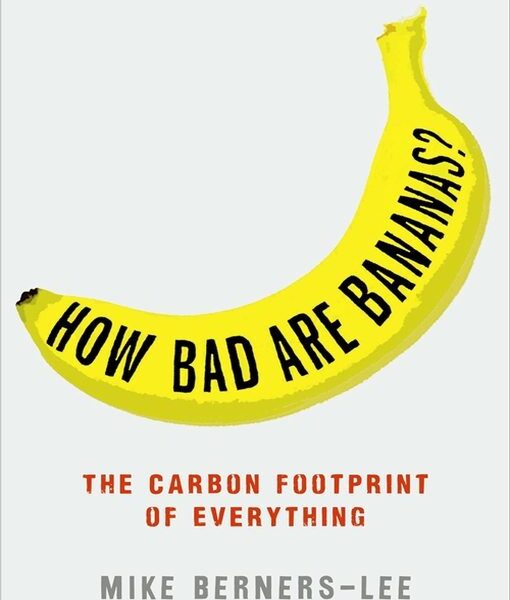

Features
Book review: How Bad Are Bananas?: The carbon footprint of everything – Mike Berners-Lee (2010)
Measuring your carbon footprint can be a complex process. How Bad Are Bananas? gives the carbon footprint on a wide variety of products, activities and food, allowing readers to assess the impact they are having.
Mike Berners-Lee, the brother of internet creator Tim, covers everyday things such as bananas, newspapers and cups of tea, to global events such as the World Cup and the Iraq war, to things even harder to quantify such as an email and your home’s mortgage.
How Bad Are Bananas? successfully offers a complete way of looking at carbon footprints. The answers are not only made up of the manufacturing costs but the footprint of the ingredients through to the items eventual disposal. As a result, the book uncovers some surprises whilst debunking popular carbon footprint myths.
It highlights the consequences our choices have and the interconnectivity of our decisions. The chapters are laid out well, starting with the products that have the smallest impact, helping to distinguish the big issues that we should be focusing on and giving some perspective. Berners-Lee gives the honest answer to the modern day dilemma of being carbon conscious whilst still wanting convenience.
The writing style is clear and conversational with complex sums made into easily digestible concepts and the numbers are explained. Whilst the book covers a serious topic, it remains humorous and engaging. There is also a bibliography contained in the book, which is full of websites devoted to climate change, for those wanting further information.
How Bad Are Bananas? is an essential read for anyone who cares about climate change and their carbon footprint.


 Environment12 months ago
Environment12 months agoAre Polymer Banknotes: an Eco-Friendly Trend or a Groundswell?

 Features11 months ago
Features11 months agoEco-Friendly Cryptocurrencies: Sustainable Investment Choices

 Features12 months ago
Features12 months agoEco-Friendly Crypto Traders Must Find the Right Exchange

 Energy11 months ago
Energy11 months agoThe Growing Role of Solar Panels in Ireland’s Energy Future




























